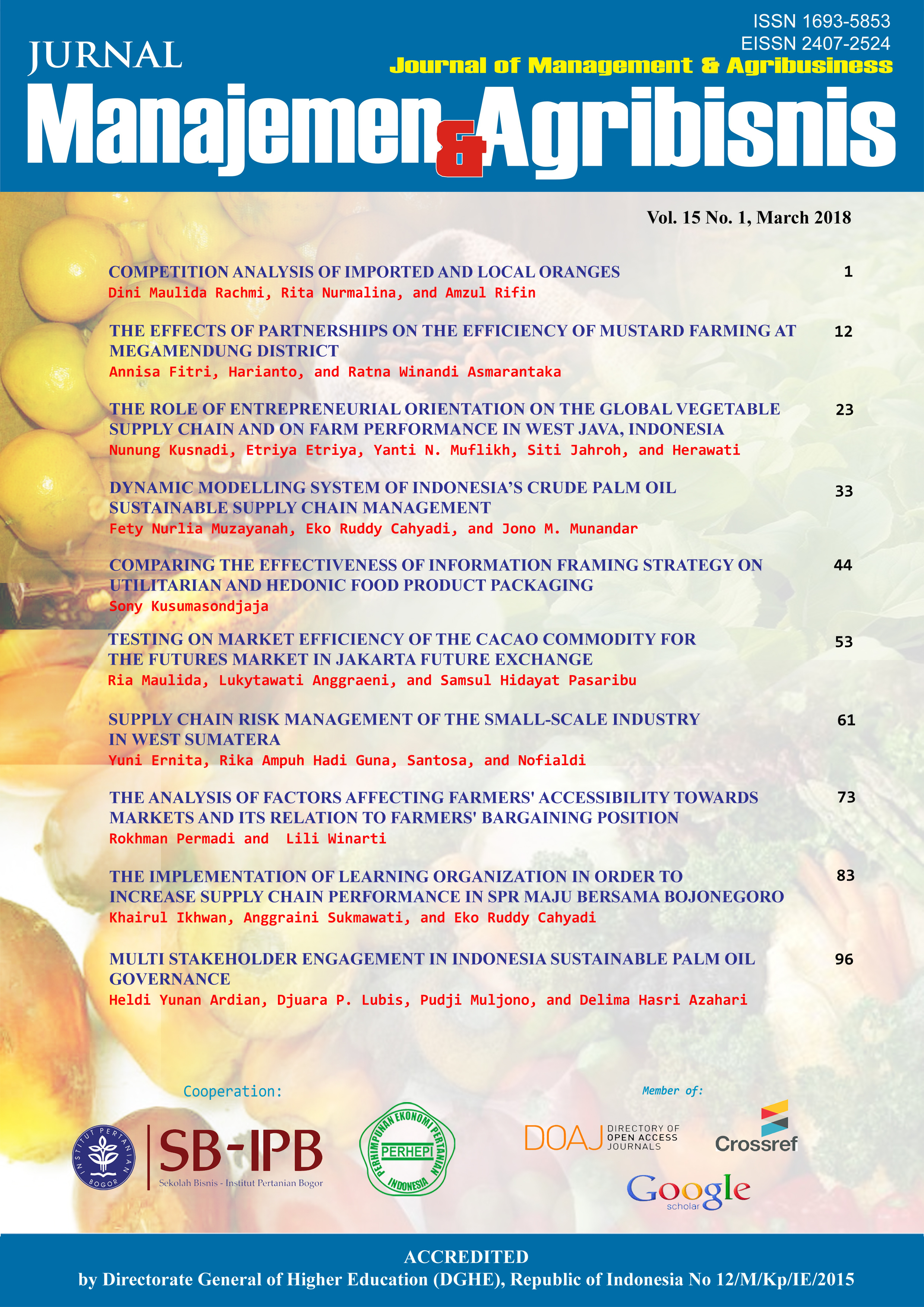The Effects of Partnerships on the Efficiency of Mustard Farming at Megamendung District
Abstract
Partnership arrangement leads to differences in the production and management of mustard farming between partner farmers and non-partner farmers. Partnership can affect input and output prices, cultivation techniques, and productivity of mustard. The objectives of this study were to identify factors that affect farmer participation in partnerships, effects of partnership on efficiency, and factors affecting inefficiency in mustard farming. The research used cross-sectional data from a sample of 70 mustard farmers, consisting of 35 farmers with partnership arrangement and 35 farmers with no partnership. The methods used were logistic regression analysis, stochastic frontier production function, and dual cost function. The research results show that factors affecting farmers to get involved in partnership are productivity and income. By participating in partnerships, farmers’ farming will be more technically efficient but allocatively and economically inefficient. Factors affecting technical inefficiency include education, number of family members and participation in partnerships. The results of the research also show that partnerships may create opportunities to the farmers to increase their farming productivity. However, they still need facilitation or assistance from the government or local institutions especially in formulating the contract agreement.
Authors
Authors who publish with this journal agree to the following terms:
- Authors retain copyright and grant the journal right of first publication with the work simultaneously licensed under a Creative Commons Attribution License that allows others to share the work with an acknowledgement of the work's authorship and initial publication in this journal.
- Authors are able to enter into separate, additional contractual arrangements for the non-exclusive distribution of the journal's published version of the work (e.g., post it to an institutional repository or publish it in a book), with an acknowledgement of its initial publication in this journal.
- Authors are permitted and encouraged to post their work online (e.g., in institutional repositories or on their website) prior to and during the submission process, as it can lead to productive exchanges, as well as earlier and greater citation of published work (See The Effect of Open Access).

